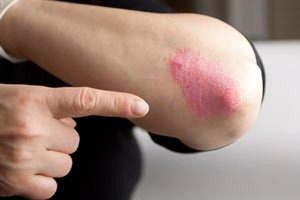
That itch! Get to know the symptoms and causes of psoriasis
Dry, itchy red patches on your body? You may be all too familiar with psoriasis, a painful and chronic condition where skin cells build up rapidly on the surface of the skin. While there isn’t a cure to get rid of symptoms of psoriasis for good, there are steps you can take for psoriasis skin care.
First, it’s important to get the definition of psoriasis straight. It’s not just a minor, temporary rash or breakout that’s causing you grief. It’s a serious and chronic disease. You need to know the symptoms of psoriasis and the causes of psoriasis – and what you can do to find relief. Continue reading…
Psoriasis vs. vitiligo, differences in symptoms, causes, and treatments
Psoriasis and vitiligo are two conditions that cause changes to the skin. Vitiligo is not contagious, nor is it life-threatening, but it can definitely alter a person’s life. Depending on where the skin is discolored, vitiligo may affect a person’s self-esteem – for example, if it affects their face or other exposed areas. Individuals may not want to go out in public and there is even a risk of developing depression associated with self-image.
Psoriasis is a chronic skin condition caused by the quick growth of skin cells and inflammation. Under normal conditions, skin cells grow, live, die, and fall off on a regular basis. When someone has psoriasis, skin cells grow rapidly and don’t fall off. As a result, the cells build up on the surface of the skin, and you end up with thick, scaly patches on your knees, elbows, lower back, or even your scalp. Continue reading…
Home remedies to soothe your psoriasis
Psoriasis is a skin disorder that causes the epidermis to become covered in raised, red, itchy plaques that are spotted with white scales. It most commonly occurs on the knees, elbows, and scalp, but may also affect your torso, palms, and the soles of your feet. These plaques are sometimes itchy and painful, and may even crack and bleed, making the condition both uncomfortable and unsightly. While there are medications available to help soothe the symptoms of psoriasis, some may prefer a simpler home remedy. Continue reading to discover some of the most common and effective home remedies for treating psoriasis. Continue reading…
Psoriasis more common in women than men: Study
Psoriasis is an abnormal skin disorder that often manifests as scaly patches that are typically red and itchy. It is considered an autoimmune disorder and it occurs more often in men than in women, according to a new study conducted by researchers at Umeå University and Karolinska Institutet.
Published in the American Journal of Clinical Dermatology, Swedish researchers studied 5,438 men and women with psoriasis who were native to Sweden and learned that women had a statistically lower incidence of severe psoriasis than men. This is surprising, considering that autoimmune disorders tend to favor females more than males. Other autoimmune disorders such as systemic lupus erythematosus (SLE), multiple sclerosis (MS), and rheumatoid arthritis (RA) are all more prevalent in women than they are in men. Continue reading…
Psoriasis diet: What foods to eat and what foods to avoid?
Psoriasis is a skin condition that causes dry, red, and itchy patches on the skin’s surface. Although there is no diet specifically for psoriasis, many patients often report relief from their symptoms when they make simple adjustments to their diet.
When devising a psoriasis diet plan, there are four main approaches a patient can take: weight loss, heart health, anti-inflammatory, and gluten-free. The rationale behind this is, psoriasis is usually worse in those who are overweight, it can take a toll on the heart, and it is accompanied by inflammation leading to other complications, and research suggests going gluten-free may also offer relief for psoriasis symptoms. Continue reading…